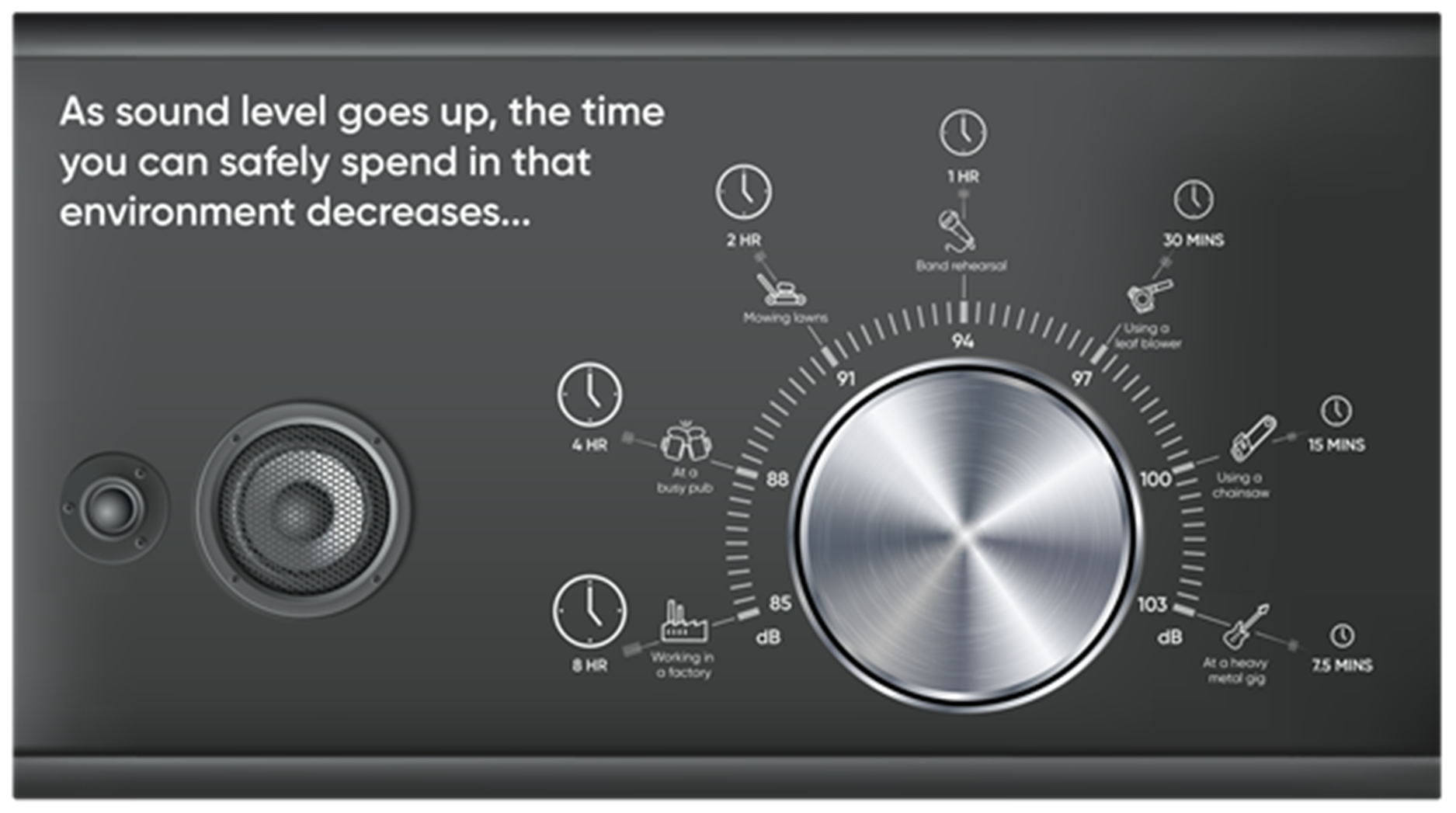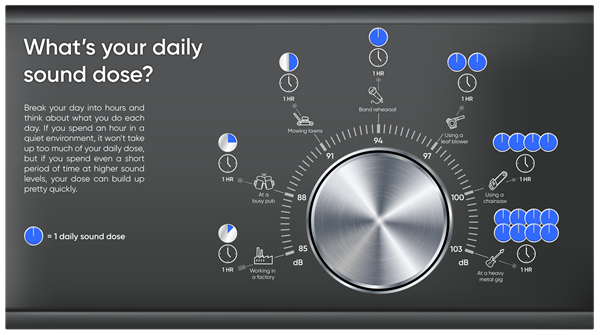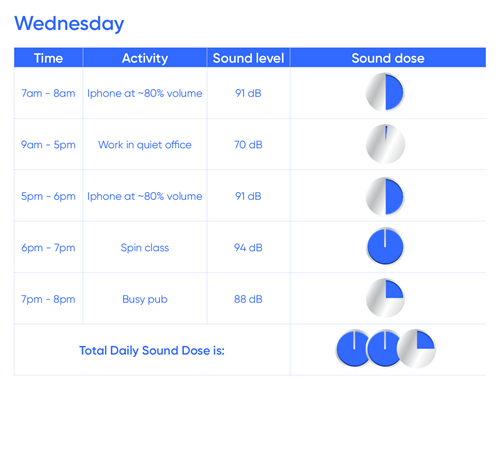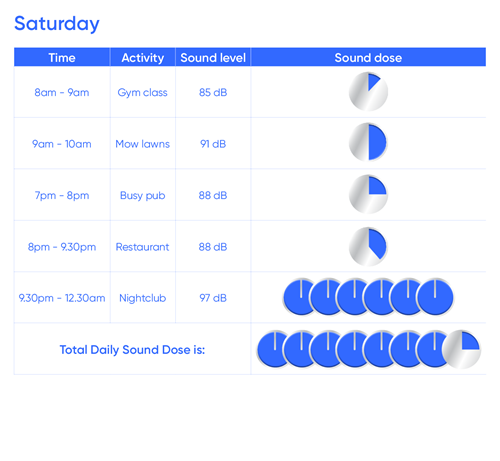How can I stop noise from damaging my hearing?
27 June 2023
Ever wondered why your hearing seems to feel muted or your ears feel ‘full’ after you’ve been to a concert? Ever noticed ringing in your ears after being exposed to loud sounds?
These are signs that your hearing system has been overloaded by loud sound, and the tiny, delicate structures inside your ear have possibly been damaged. In the long run, this can lead to significant hearing loss, but there are some simple things you can do to protect your hearing from loud sound.
- Reduce your sound exposure.
- Get to know your daily sound dose.
- Take control of your sound exposure with earplugs or earmuffs.
Reduce your sound exposure
The best way to protect your hearing is to be aware of your exposure to loud sound and look for ways to reduce it. Exactly how you do this depends on your lifestyle and the types of noisy activities you like doing – you don’t have to stop doing what you love. There are simple things you can do to reduce your exposure, it’s a matter of thinking about where and when you can make a healthier hearing choice.
You could:
- turn down the volume a notch when you’re listening to loud music on your phone or in the car;
- choose to buy a power tool that has a lower noise rating;
- stand a little further away from the speakers at your next live music gig;
- whatever you do, take a moment to consider if there’s something you can do to reduce the volume of the sounds around you.
Get to know your sound dose
When it comes to damaging your hearing, it is not just the loudness of the sound that matters, but how long you spend listening to it. The louder the sound, the more quickly you reach the limits of safe listening.
In workplaces, there are daily exposure limits in place to protect your hearing1. These limits set out how much sound exposure employees can receive each day before employers must take action to reduce exposure. If you go over your daily sound dose on a regular basis, chances are you’re damaging your hearing and there is a risk that you will develop a hearing loss in the long-term.
But loud sound isn’t just heard in workplaces. It’s also a feature of many recreational activities that we do when we’re not at work. Think concerts, nightclubs, listening to music, riding a motorbike, and mowing the lawn.
Our daily sound dose can be made up of both recreational and workplace sound exposures. The image below shows how spending an hour at different sound levels contribute to your daily sound dose.

Now let's think of a typical weekday. Imagine that it's Wednesday, you commute to work listening to your phone, have a quiet day at the office, listen to the phone again on the train, take a spin class, and go to the pub for an hour. Each activity on its own is less than 1 daily sound dose, but add them all together and you've built up more than 2 sound doses, which is more than twice the permissible daily sound limit.
Now consider the weekend. It's a Saturday, you take a quieter gym class, mow the lawns, and then head out with friends. You stop at the pub for an hour, have dinner at a busy restaurant and go clubbing for 3 hours. Nightclubs are loud - and spending 3 hours there gives you the equivalent of 6 daily sound doses. Add that to your activities and you reach a little over 7 sound doses for that day - that's more than a week's worth of sound in a single day!

Take control of your sound exposure with earplugs or earmuffs
Some loud noises are unpleasant – power tools, mowers and leafblowers, gunshots – and that means putting on a set of earmuffs or using earplugs is a great option – not only will you protect your hearing, you’ll also block out the unwanted sound. If you work in a noisy environment, such as a construction site or manufacturing plant, earplugs or earmuffs should be available for you to use. If not, ask your health and safety officer. If you’re still unsure, contact the WHS regulator in your state or territory. All the links are below.
- SafeWork NSW
- WorkPlace Health & Safety QLD
- WorkSafe VIC
- WorkSafe ACT
- SafeWork SA
- NT WorkSafe
- WorkSafe WA
- WorkSafe Tasmania
When the sound you’re listening to is something you want to hear – your favourite band, the roar of a crowd at the footy – you won’t want to block out the sound entirely, but you can choose a safer listening level by using earplugs to protect your hearing and keep within your daily sound dose.
Take music concerts, for example. Because they are often really loud and usually last for a couple of hours, they nearly always push you over your daily noise dose. Foam or silicon earplugs will reduce the sound level, but music earplugs are often a better choice. There is a large range of high-fidelity music earplugs that are designed to lower the volume of the music without impacting on the sound quality.
